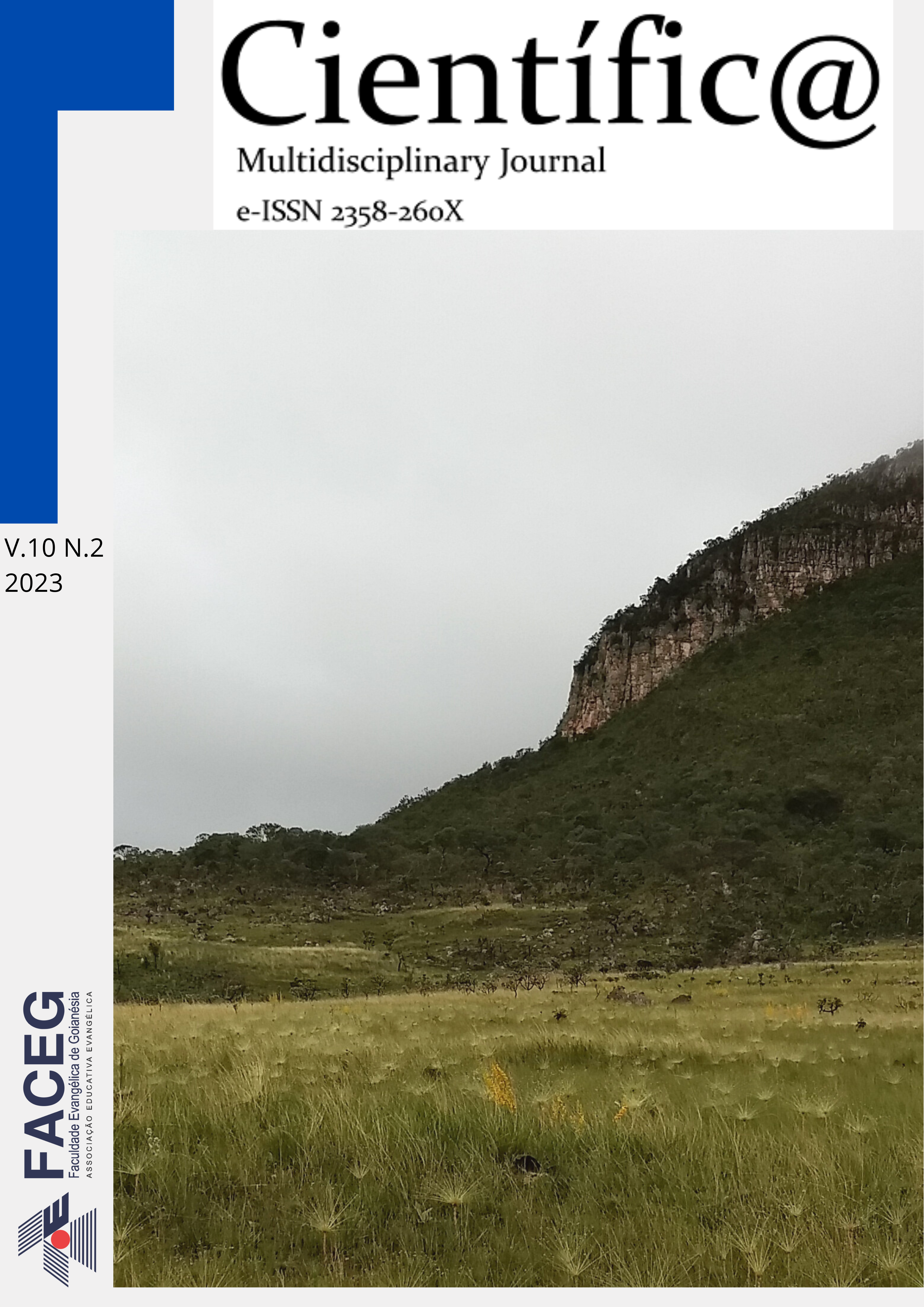MICROBIOLOGICAL EVALUATION OF MECHANICAL MILKING MACHINE SYSTEM
DOI:
https://doi.org/10.37951/2358-260X.2023v10i2.6822Abstract
Milk is one of the main food products consumed by Brazilians, it has a high nutritional value, which facilitates the proliferation of microorganisms that cause mastitis and reduces the quality of milk. Good milking practices are procedures to produce milk with high hygienic quality, reducing the risk of contamination. The objective of this work was to evaluate the hygiene management and the microbiological quality (Total Coliforms, Thermotolerant Coliforms and colony count) of the mechanical milking machine of the Bovinoculture sector of the Instituto Federal Goiano - Campus Ceres. Sterile swabs were used to collect samples in sets of four teat cups and in the balance tank before and after milking, both in the morning and afternoon shifts. Collections were carried out fortnightly from August 2018 to June 2019. The samples were named T1, T2, T3, T4, T5 and taken to the Microbiology laboratory for analysis. All samples showed contamination with total coliforms, with the T5 point having the highest contamination (258.9 MPN/g). All samples were negative (<3.0 MPN/g) for the thermotolerant coliform group. Regarding the colony count, significant differences were observed with a reduction of up to 76% in counts, in the years 2018 (136.67 CFU/mL; 118.67 CFU/mL) and 2019 (195.13 CFU/mL mL; 46 CFU/mL) before and after the cleaning process, respectively. There is no legislation for total coliforms in milking machines, but the values ​​found are similar to those described in the literature (< 3.0 to 1,100 MPN/g). Regarding colony counts, there is no standard for milking machines, but for fresh milk (3.0 x 105 CFU/mL), therefore, all samples complied with current legislation. The cleaning system of the milking machine at the Instituto Federal Goiano - Campus Ceres presented many nonconformities, requiring greater monitoring in relation to the cleaning process and training of the operators who perform the milking of the animals. It is of the utmost importance that all those involved in the milk production chain become aware of and incorporate good milking practices into their routine, in order to achieve the highest standard of milk quality.
Downloads
Published
How to Cite
Issue
Section
License
Esta revista oferece acesso livre imediato ao seu conteúdo, seguindo o princípio de que disponibilizar gratuitamente o conhecimento científico ao público proporciona maior democratização mundial do conhecimento.
A partir da publicação realizada na revista os autores possuem copyright e direitos de publicação de seus artigos sem restrições.
A Revista Científic@ - Multidisciplinary Journal segue os preceitos legais da licença Creative Commons - Atribuição-NãoComercial 4.0 Internacional. 

